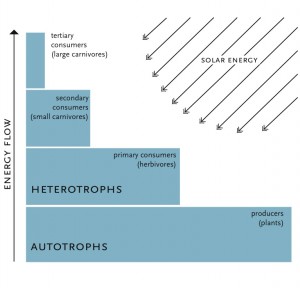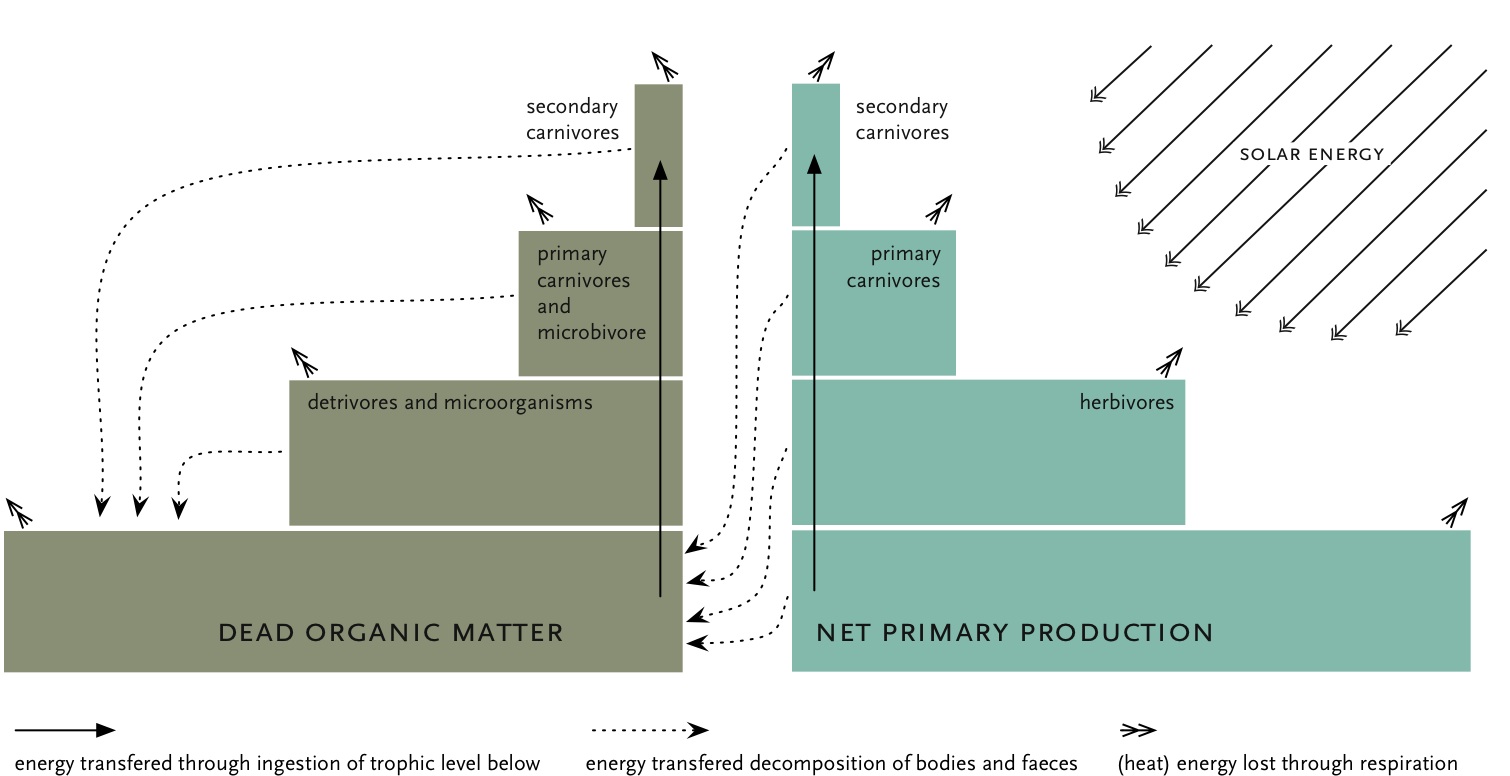DIGITAL AUDIO VISUAL PROJECTS

FILTERSCAPE
Filterscape is a simple sonic ecosystem in which agents traverse a spectral filter, extracting energy from one frequency band and re-depositing it in another.
In their simplest form, ecosystems can be represented by a general energetic model in which there is a flux of kinetic energy into and between the potential energy stored within organisms in the ecosystem and a net loss of energy to the environment as a result of the energy-dissipative activities of the organisms:
- Dighton, after (Odum, 1968).
For many years, researchers and artists using evolutionary methods for generative art have sort ways of implementing implicit fitness specification - attempting to hard code 'good' behaviour is hard, and interactive approaches are laborious. In an attempt to increase the autonomy of a system, this project takes inspiration from natural ecosystems and implements a simple energy model based on resource recycle.
Energy flow in ecosystems
The implementation of an energy model as an integral part of a creative ecosystem provides an natural, and implicit, means of determining the chances of survival and reproduction - i.e. of specifying the fitness of components. This is nothing new in itself: many agent-based models measure fitness in terms of an agent's ability to collect externally supplied resources from an environment.

The standard energy model in agent based simulations focuses on the flow of energy from primary producers (green plants etc) to herbivores (primary consumers), and sometimes secondary consumers such as carnivores or parasites. This is known as the grazer system in ecology. At each trophic level in the real world there is an energy loss, creating a pyramidal form that reflects the relative proportions of bio-mass and energy stored at each successive level in the food web. In simulation, this form of energy model naturally supports competitive interactions between agents as they battle for resources.

In the real world the grazer system is coupled with a decomposer system through which the bodies and faeces of all organisms in the food web are recycled. By expanding the basic energy model to include recycling, we were able to generate mutualistic as well as competitive interactions, so introducing novel survival strategies. Agents can not only compete for resources, but can cooperatively 'feed' from each other's waste.
Filterscape won the EvoMusArt Best Paper award 2009. Read it here
|
| |
|
|

|
|
| |